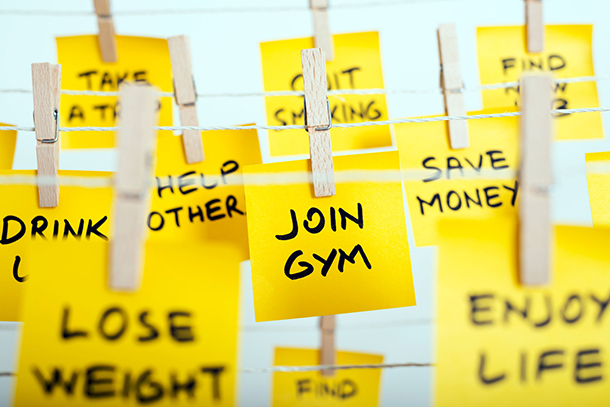Eat healthier? Get in shape? Go vegetarian? Complete a triathlon?
As 2018 draws to a close and 2019 begins, many Americans are thinking about New Year’s resolutions. The most common resolutions have to do with improving health and losing weight.
According to Carolyn Kaloostian, MD, MPH, clinical assistant professor of family medicine and geriatrics at the Keck School of Medicine of USC, there are many reasons why fewer than 1 in 10 people achieve success.
“These start-of-the-year priorities unfortunately get sidelined due to competing obligations, responsibilities, and commitments from work or family,” Kaloostian said.
Kaloostian shared five tips to help those setting New Year’s resolutions reach their goals:
1. Strategically establish short-term realistic goals. When success is achieved easily and quickly, it can build momentum that will be essential to reaching your final goal of a healthier lifestyle and weight loss.
2. Discuss your goals with friends and family. Better yet, make sure to team up with a motivated partner. Chances are better for success if there is another person you do not want to let down. Set up a fun physical activity on a regular schedule which works for both of you.
3. When it comes to diet, the best food choices are good for the heart and the brain. A diet high in omega fatty acids such as salmon and flaxseed, and less processed meats and saturated fats. Make processed sugars less available and avoid stocking your home or workplace with foods you want to avoid.
4. Avoid any rapid weight loss diets which emphasizes an excess of one ingredient. Too much of anything can be bad.
5. Be flexible. If in the past joining a gym did not work, perhaps this time a fun outdoor activity like hiking or running, a spin or yoga class would be better. The key is to make it fun and engaging.
Although joining a gym may seem like a surefire path to better fitness, and is even more appealing at this time of year due to discounts, Kaloostian cautions that “crowded gyms may not live up to your expectations and waiting for your favorite machines is very disappointing.”
“I see some of the best results from patients who join a team and compete with others in obstacles races and runs,” Kaloostian said. “They train together, help each other through injuries, develop great friendships due to similar goals, and have short-term goals to succeed at the upcoming course.
Making New Year’s resolutions stick: Start slowly
“For those who are new to getting moving, our so-called ‘couch potatoes,’ I strongly recommend starting with a short low-intensity fast-paced walk, about 15 minutes daily after stretching of course, to get into the groove and see how good it feels to just get moving. It would be dangerous to jump into an intense workout regimen which may result in injuries,” Kaloostian added.
Above all, Kaloostian encourages people to be both realistic and optimistic about their resolutions.
“Approach each day with gratitude and refresh your commitment to this goal each morning. Try to avoid adding new projects to your to-do list as this may pull you away from your goal.”
— Jenesse Miller


